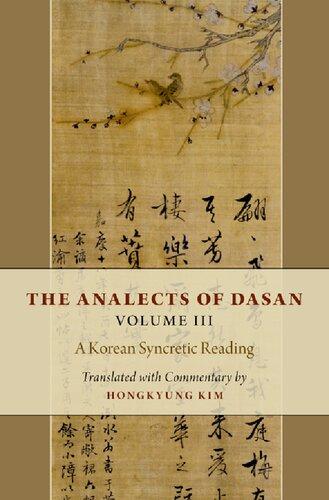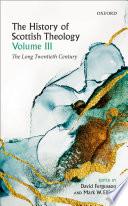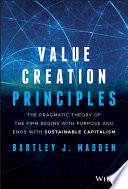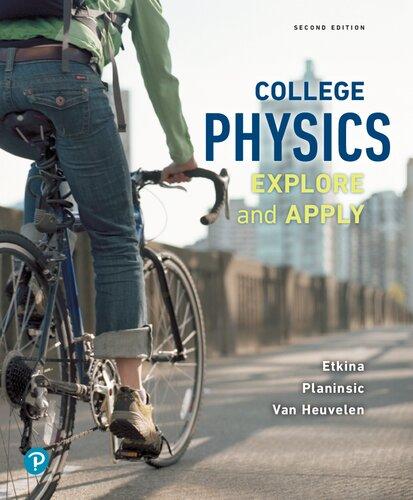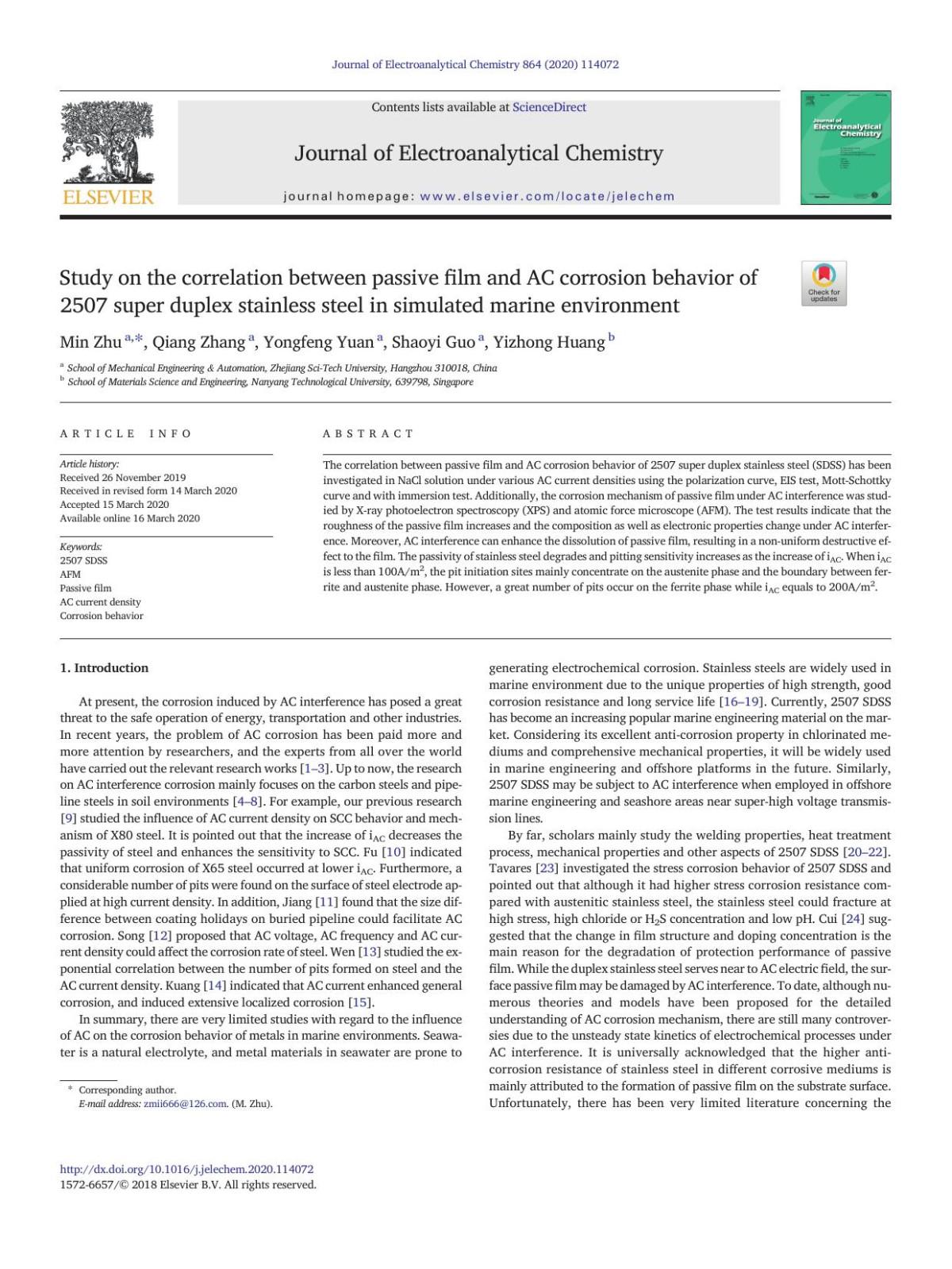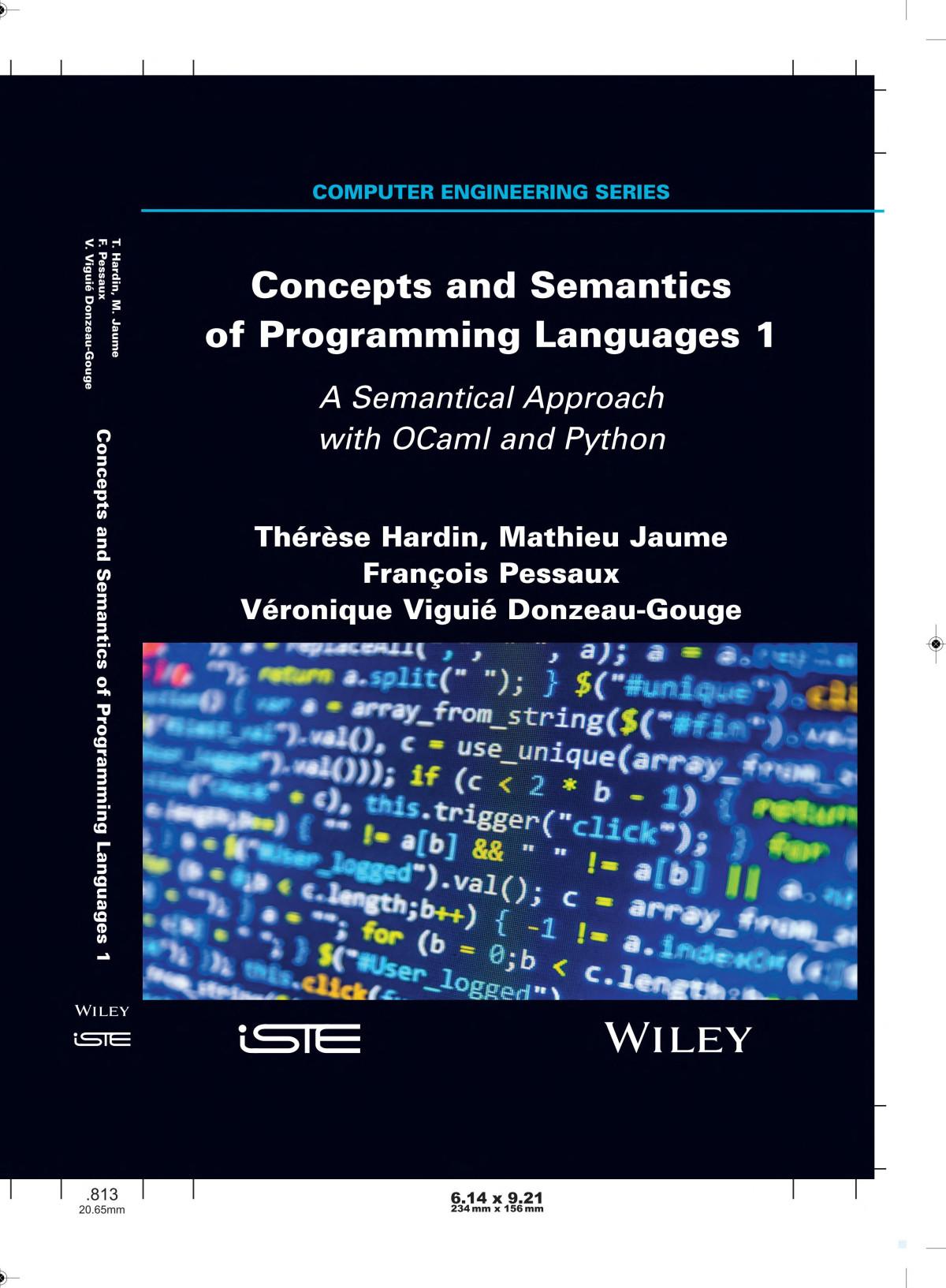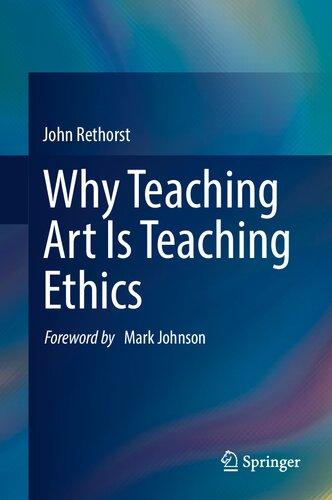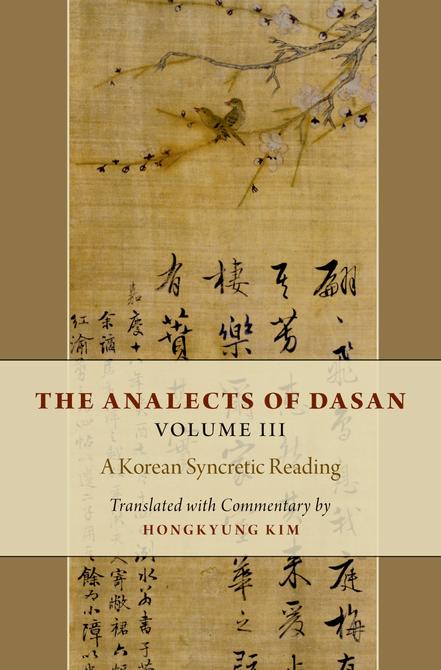An Overview of the Original Meanings in Volume 3
59. The phrase wu zhi mian fu 吾知免夫 (“I know I shall avoid punishment and execution”) means that Master Zeng came to know that he would be able to avoid punishment and execution. (8.3)
60. Bao 暴 in bao man 暴慢 should be read in the checked tone [入聲]. (8.4)
61. The teaching of the chapter that says, “The people can be made to follow it,” is not to conceal the Way from the people. (8.9)
62. In the remark, “If Heaven had intended to extinguish the wen 文,” “the wen” refers to Changes. (9.5)
63. The expression kou qi liang duan 叩其兩端 (“scoured both ends”) conveys how Confucius increased his knowledge, taking advantage of the questions people asked him. (9.8)
64. Chen in the phrase wen ren wei chen 門人爲臣 (“[Zi Lu] made some disciples serve as the court retainers”) refers to the court retainers who help a dying person by holding his limbs. (9.12)
65. The term shan gu 善賈 (“a good merchant”) refers to a merchant who excels over other merchants. (9.13)
66. The term shi zhe 逝者 (“what goes by”) signifies one’s life. (9.17)
67. The expression ke yu quan 可與權 (“a person can balance weights in moderation”) does not mean that his actions come to conform to the Way by being the opposite of jing 經 (9.30)
68. The royal ancestral shrine [宗廟] is the venue where debates of governing took place. (10.1)
69. The phrase guo wei 過位 (“when passing by the officials’ stations in the court”) does not mean that Confucius passed by the empty royal station. (10.4)
70. The reason dark blue, dark red, pink, and purple silks were not used has nothing to do with the fact that they belong to the category of mixed colors. (10.6)
71. The color of the upper garment xi yi 裼衣 should be different from that of the leather dress [裘]. (10.7)
72. Wei chang 帷裳 refers to the carriage curtain. (10.10)
73. “Visits of condolence” in the passage that says, “Confucius did not wear the lambskin dress or the black ceremonial cap on visits of condolence,” regards the visits that take place before the lesser ritual of dressing the deceased. (10.11)
74. Confucius wore the ceremonial garments for the court audience on the first day of the month because the lord and subjects cannot wear the same kind of ceremonial garments. (10.12)
75. Che 撤 (“cleared”) in the sentence bu che jiang shi 不撤薑食 (“he did not have the ginger snack cleared”) should be read as synonymous with che 徹 (to remove), which means to remove dishes. (10.15)
76. The phrase shi zai shi zai 時哉時哉 conveys a message that it is the time for the pheasant to leave. (10.34)
8.1 The Master said, “Tai Bo may be said to be a person of supreme virtue. Three times he yielded all under heaven, and the people could not find anything to praise him for.”1
子曰; 泰伯, 其可謂至德也已. 三以天下讓, 民無得而稱焉.
8.1.1
Grounds
1) Wang Shu 王肅 (195–256) commented, “Tai Bo 泰伯 was the eldest son of King Tai 太 of Zhou 周.” [All of Wang Shu’s comments in this book appear in Lun yu jijie 論語集解 in Lun yu zhushu 論語註疏, unless otherwise noted.]
2) I supplement as follows: He acted in a virtuous manner and furthermore concealed his name from the people. These actions help constitute the supreme virtue.2 San rang 三讓 (“Three times he yielded”) means that Tai Bo thrice yielded the throne to [his youngest brother] Ji Li 季歷. Confucius used the term “all under heaven” when he discussed this event because Zhou eventually acquired all under heaven and thus yielding Zhou was equal to yielding all under heaven.
3) Master Zhu commented, “That the people could not find anything to praise him for illustrates how even his humility was untraceable and, accordingly, none of his merits were visible.”
1 This book contains twenty-one chapters. Lu Deming 陸德明 (556–627) said, “In a certain edition, de 得 appears to be de 德 (virtue)” (Jingdian shi wen 經典釋文, 24:11a).
2 Master Zhu commented, “[The supreme virtue] refers to the highest point of virtuous deeds. It cannot be improved any further.” [All of Zhu Xi’s 朱熹 (1130–1200) comments in this book appear in Lun yu jizhu 論語集注, unless otherwise noted.]
8.1.2
Arguments
1) Zheng Xuan 鄭玄 (127–200) argued, “When King Tai fell ill, Tai Bo went to the state of Wu 吳 to seek medical herbs. He did not return even when King Tai passed away, so Ji Li became the chief mourner. This was Tai Bo’s first instance of yielding; although Ji Li sent him a notice of King Tai’s demise, he did not join the mourning rituals. This was his second instance of yielding; after the mourning period, he had his hair cut short and received a tattoo on his body [to show that he was not qualified to be a ruler]. This was his third instance of yielding.”3 [All of Zheng Xuan’s comments on the Analects in this book appear in Lun yu jijie in Lun yu zhushu.] I would refute this as follows: Even if he had not had his hair cut after the mourning period, would Zhou have aspired to elevate him to the position of ruler?
2) Fan Ning 范寗 (c. 339–401) argued, “King Tai died, and Ji Li was enthroned. This was the first instance of yielding; Ji Li died, and King Wen 文 was enthroned. This was the second instance of yielding; King Wen died, and King Wu 武 was enthroned and eventually possessed all under heaven. This was the third instance of yielding.”4 Gu Yanwu 顧炎武 (1613–1682) also argued, “The poem ‘Huangyi 皇矣’ reads, ‘The lord raised up the country and its partner [ruler]; this work began with Tai Bo and King Ji [Ji Li]’ (Mao Shi zhushu 毛詩 註疏, 23:88a). It can be inferred from this poem that Zhou was in the midst of overpowering others during the time of Tai Bo. However, he left the country and did not return on the pretext of seeking medical herbs. It appeared, at the time, to be an act of yielding a state but, in light of later events, proved actually to be an act of yielding all under heaven;5 it appeared to be an act of yielding it to Wang Ji but, in light of later events, proved actually to be an act of yielding it to King Wen and King Wu. The real person who possessed all under heaven [King Wu] emerged three generations later, and the act of yielding all under heaven to him was taken three generations earlier. Thus the ancestral hall of Zhou could not maintain a record of Tai Bo’s merits, nor could the ritual vessels hold inscriptions about his deeds. This is what is meant by the remark, ‘Three times he yielded all under heaven, and the people could not
3 See Xing Bing’s 邢昺 (932–1010) comment [in Lun yu zhengyi 論語正義 in Lun yu zhushu. All of Xing Bing’s comments in this book appear in Lun yu zhengyi, unless otherwise noted].
4 An unknown commentator also argued, “When King Tai fell ill, Tai Bo left the state on the pretext of seeking medical herbs. In doing so, he did not serve his father according to ritual propriety, when he was alive. This was the first instance of yielding; when King Tai died, he did not return and thereby compelled Ji Li to take charge of the mourning rituals. In doing so, he did not bury his father according to ritual propriety, when he passed away. This was the second instance of yielding; he also had his hair cut short and received a tattoo in order to show that he could not be appointed to the royal throne. These actions were intended to leave Ji Li in charge of the sacrificial rituals. In so doing, he did not offer sacrifices to his father according to ritual propriety. This was the third instance of yielding.” For these comments, see Lun yu jijie yishu 論語集解義疏 (Lun yu yishu hereafter) by Huang Kan 皇侃 (488–545). [All comments by Fan Ning and Huang Kan in this book appear in Lun yu yishu, unless otherwise noted.]
5 [According to Gu Yanwu, Confucius’s disciple] Nangong Kuo 南宮适 made the following remark in the same context (Re zhi lu, 7:9b): “[King Yu 禹 and] Ji 稷 cultivated land themselves and possessed all under heaven” (Lun ju jizhu, 14:5).
find anything to praise him for.’ Lu shi 路史 says, ‘During the year of King Tai’s reign, the throne was given to Wang Ji, who bestowed it on King Wen, who in turn bestowed it on King Wu. Tai Bo initiated this practice of royal succession. Therefore it says, “The three kings yielded the throne [三讓 in the context of Lu shi]” ’ (Re zhi lu 日知錄, 7:9b–10a). [The Sinjo edition places Gu’s argument after the following chapter under the title “Supplementary Documents of ‘Tai Bo’ ”; I follow, here, the Established edition].
I would disagree with these arguments.6
3) Miao Xie 繆協 (fl. Jin dynasty) argued, “The kingly government was achieved by virtue of the three sages—Ji Li, King Wen, and King Wu. So it says, ‘[Tai Bo] yielded all under heaven for the three sages [in Miao Xie’s reading].’ ”7 I would refute this.
4) I question Master Zhu as follows:
Jizhu states, “Yielding three times demonstrates one’s very willful resignation.”8 As I understand, details of the practice of yielding three times have been recorded in “Pin li 聘禮,” “Da she li 大射禮,” “Xiang yin li 鄕飮禮,” “Xiang she li 鄕射禮,” “Tou hu li 投壺禮,” and “Shi xiangjian li 士相見禮.” However, a son’s yielding of what his father bequeathed to him or an older brother’s yielding of what his younger brother offered him does not need to be conducted on a ritual mat on a specific day in the same manner a host and a guest exchange their ritual remarks. Thus Tai Bo’s acts of yielding all under heaven three times were unjustifiably likened to the rituals of yielding three times and bowing three times: these rituals were purported to be a means to accomplish refined expressions through decoration of appearances. One should cite actual facts pertaining to the three acts of yielding, which were certainly responses to the three acts of offering. However, no evidential investigation is possible now due to the lack of historical documents on the events. Nevertheless, a band of scholars— including Zheng Xuan and Fan Ning—made speculations, conjectures, interpolations, and far-fetched suggestions: even though they discussed the topics all day, no one was willing to accept and follow their suggestions. I am afraid that it would be better to leave the questions unanswered.9
6 Gu Yanwu continued, “Even though Tai Bo did not return to attend the funeral for his father and ruined his skin and hair, his deeds were not considered unfilial” (Re zhi lu, 7:11a–b). In my view, Zhong Yong 仲雍 [Tai Bo’s younger brother who, with Tai Bo, established the state of Wu] also had his hair cut short and received a tattoo because he wished to govern the state according to local custom. Zi Gong’s explanation of this incident [which appears in the seventh year of the reign of Duke Ai 哀 in Zuo’s Commentary] contains no errors at all. It would be a mistake for later people to say that Tai Bo ruined his skin and hair.
7 See Huang Kan. [All of Miao Xie’s comments in this book appear in Lun yu yishu.]
8 In ancient times, people considered yielding three times a moral standard when they performed any act of yielding. The first act of yielding would be performed for the purpose of following ritual propriety; the second would be performed for the purpose of showing one’s strong will; the third would be performed as a sign of final determination.
9 Zhao Shuai 趙衰 (d. 622 Bce) also yielded three times. According to [Wei Zhao’s 韋昭 (204–273) comment in] “Jin yu 晉語,” this also means that he three times yielded the post of minister, which had been offered to him (see Guo yu 國語, 10:27a). In other words, it does not mean that he yielded three times on a specific day.
5) For a classical text that is related to the previous discussion, see Wu Yue Chunqiu 吳越春秋, which says, “The Old Duke [古公, King Tai] was about to die of illness, so he ordered Ji Li to yield the state to Tai Bo. Tai Bo, however, yielded three times and did not receive the state. Thus it says, ‘Tai Bo yielded all under heaven three times on this day [according to this explanation]’ ” (Wu Yue Chunqiu, 1:4a).
In my view, Wu Yue Chunqiu is not a reliable source.
Dasan rejects here many speculations on the meaning of san rang and merely suggests that it refers to three acts of yielding that might have been performed at different times. In his view, it does not mean that Tai Bo yielded all under heaven for three Confucian heroes (Zheng Xuan or Miao Xie), nor does it mean that he yielded it three times on the day when his father, King Tai, offered him the throne (Wu Yue Chunqiu). Dasan’s criticism of these speculations sounds harsh, especially when he entirely denies the authenticity of Wu Yue Chunqiu. The understanding of this chapter presented in Wu Yue Chunqiu, however, is one that Zhu Xi shared, in that he too inferred that Tai Bo’s act of yielding three times was an act of ritual propriety: this act, only naturally, would take place on the day when a person yielded whatever was offered to him. Dasan takes a different line of approach from Zhu Xi’s in raising a question about his annotation of this term in order to reveal this more severe flaw in his interpretation.
Although Dasan believed that the term san rang described three acts performed at different times, he did not even attempt to specify when and by whom these acts were performed. It was because, Dasan explains, he did not have reliable sources for further investigation. This attitude of refraining from unsubstantiated conjecture, demonstrating his “rational” perspective before a dearth of evidence, rivaled modern standards of scholarship, even though his sources for historical facts were quite limited to Confucian classical texts.
8.2 The Master said, “Respectfulness without ritual propriety leads to unease; sincerity without ritual propriety leads to dissatisfaction; courage without ritual propriety leads to disorder; honesty without ritual propriety leads to intolerance. If the noble person is earnest in his devotion to his family, the people will rise to the level of humanity; if the old subjects are not abandoned, the people will not be volatile.”
子曰; 恭而無禮則勞, 愼而無禮則葸, 勇而無禮則亂, 直而無禮則絞. 君子 篤於親, 則民興於仁. 故舊不遺, 則民不偸.
8.2.1 Grounds
1) I supplement as follows: Lao 勞 (“unease”) is a word used to describe one’s discomfort;10 xi 葸 (“dissatisfaction”) is a word used to describe one’s unhappiness;11 luan 亂 (“disorder”) is here synonymous with wen 紊 (confusion);12 jiao 絞 (“intolerance”) is here synonymous with ji 急 (urgency).13
2) I supplement as follows: Gu jiu 故舊 (“the old subjects”) refers to the old subjects who served the deceased lord;14 yi 遺 (“abandoned”) is here synonymous with qi 棄 (to abandon) or wang 忘 (to forget);15 tou 偸 (“volatile”) is here synonymous with tiao 挑 (to agitate),16 so bu tou 不偸 means that the people also do not betray the deceased lord.
8.2.2
Arguments
1) He Yan 何晏 (195–249) argued, “Xi here is a word used to describe one’s fear.”17 [All of He Yan’s comments in this book appear in Lun yu jijie, unless otherwise noted.] I would refute this as follows: Da Dai Li ji 大戴禮記 says, “Having an unhappy face [葸] when listening to a discussion on morals—this nearly demonstrates that the person is not pleased with the discussion.”18 A comment [by Lu Bian 盧辯 (fl. Northern Zhou)] that is attached to this passage says, “Xi is a word used to describe one’s dissatisfaction” (Da Dai Li ji, 4:12a). In fact, xi here is interchangeable with si 偲 (solemn), which is used in the saying, “Be solemn to friends; be genial to brothers” (Lun yu jizhu, 13:28). So having a dissatisfied face is called xi. If a person is excessively sincere and not guided by ritual propriety, his face would seem to express dissatisfaction.
2) Ma Rong 馬融 (79–166) argued, “Jiao means to censure.”19 [All of Ma Rong’s comments in this book appear in Lun yu jijie, unless otherwise noted.] Huang Kan also argued, “If a person is honest and guided by ritual propriety, he will not distort the truth when he acts; if he is not guided by ritual propriety, however, he will mock and excoriate others for their faults, causing inevitable resentment.” [All of Huang Kan’s comments in this
10 Confucius was respectful and at ease [see 7.39].
11 This refers to having no look of contentment.
12 This refers to making no distinction between superiors and inferiors.
13 Master Zhu commented, “Jiao refers to the two ends of a rope that are tightened to one another, making it difficult to loosen them” (Lun yu jizhu daquan 論語集注大全, 8:4a).
14 For more, see the following discussions.
15 Mencius says, “No one who is humane abandons [遺] his family” (Mengzi jizhu 孟子集注, 1A:1).
16 According to “Shi yan 釋言” in Er ya 爾雅, this word connotes frivolity (see Er ya zhushu 爾雅註 疏, 2:8b).
17 Cai Qing 蔡淸 (1453–1508) also argued, “Xi is a word used to describe extreme fear, when a person is horrified by the head and the tail of a thing simultaneously” (Si shu meng yin 四書蒙引, 6:55b).
18 “Zengzi li shi 曾子立事” (Da Dai Li ji, 4:12a).
19 Xing Bing added, “It means to censure others for their wrongdoings.”
book appear in Lun yu yishu, unless otherwise noted.] I would refute these arguments as follows:
Harshly remonstrating with one’s superior, daring to ignore his face, is also harmonious with ritual propriety. How can a person stop doing so due to his concerns about possibly causing resentment?
3) For a classical text that is pertinent to the main passage, see “Zhong Ni yan ju 仲 尼燕居,” which says, “The Master said, ‘Prudence that is not moderated by ritual propriety is called uncultivated; respectfulness that is not moderated by ritual propriety is called accommodating [給];20 Courage that is not moderated by ritual propriety is called defiant.’ The Master also said, ‘Accommodating [people excessively] ruins benevolence and humanity’ ” (Li ji zhushu 禮記註疏, 50:21a).
In my view, ji 給 here in this quotation refers to supplying people with goods in the same manner a servant drives a carriage for his master.21
4) Bao Xian 包咸 (7 Bce–63) argued, “If a lord is dedicated to his family and relatives and does not forget his old friends, the people will be inspired.” [All of Bao Xian’s comments in this book appear in Lun yu jijie, unless otherwise noted.] Hu Yunfeng 胡雲峰 (胡炳文, 1250–1333) also argued, “ ‘The noble person neither neglects his family nor abandons his old friends unless he experiences great trouble with them.’22 This is the Duke of Zhou’s [周公, d.1033] remark, which conveys the same teaching as the one in this chapter. They present the supreme level of wholeheartedness and dedication” (Lun yu jizhu daquan, 8:4b). I would refute these arguments as follows: Gu jiu here refers to the old ministers who served the former lord. “Pangeng 盤庚” says, “Long ago, our former kings had discussions with old subjects [舊人, in Dasan’s reading] and employed them in government” (Shang Shu zhushu 尙書註疏, 8:6b). “Weizi” also says, “[King Zhou 紂] disregarded the aged people, the men who had long been in office” (9:23a). “The aged people” here refers to the old subjects of the former king. If those with the highest authority recklessly abandon the old subjects of the former lord, the people will also become volatile and recklessly abandon their old lord. Thus “Fang ji 坊記” and “Da xue 大學” both contain a warning about the dangers that may ensue from the act of abandoning old subjects, and “Qi yu 齊語” also contains a record of Guanzi’s 管子 remark, which conveys the same teaching.23 In his praise of Meng Zhuangzi’s 孟莊子 filial piety, Confucius said, “All other aspects are possible to follow. He replaced neither his father’s subjects nor his father’s government. These deeds are difficult to follow” (Lun yu jizhu, 19:18). Confucius’s teaching on this topic is so enlightening that it cannot be ignored. 5) For a classical text that is related to the previous discussion, see “Qi yu,” which says, “Guanzi replied to Duke Huan [齊桓公, r. 685–643 Bce], ‘In
20 This means to be excessively respectful as though flattering.
21 The old comment on this character [in Li ji zhushu, according to which ji is synonymous with ji 急 (to hurry)] is incorrect.
22 See “Weizi 微子” in the Analects (Lun yu jizhu, 18:10).
23 See the following quotation.
government, if the old subjects are not treated like inns [旅舊], the people will not become volatile’ ”24 (Guo yu, 6:10a–b).
In my view, gu jiu refers to the old subjects who served the former lord. Lü jiu 旅舊 in this quotation means to treat the old subjects like inns that the lord visits temporarily.
6) For a classical text that is related to the previous discussion, see “Fang ji” (Li ji zhushu, 52:18b, 4–19a, 2).
7) For a classical text that is related to the previous discussion, see “Da xue,” which says, “If the superior serves the old as he should, the people will attain the virtue of filial piety . . . [i]f the superior relieves the orphans of their cares, the people will not commit an act of betrayal [倍]” (61:11b–12a).
In my view, bei 倍 in this quotation is interchangeable with bei 偝 (to betray). So its last sentence means that the people will not betray the deceased lord and will care for the orphan of the deceased [the heir prince].
Dasan suggests a new reading in this chapter, as usual, with a focus on the meaning of gu jiu. The old and new commentaries agree that it refers to “old friends,” believing that this passage concerns an ethical guideline for all—not just for the rulers. In contrast, Dasan contends that this chapter alludes to the effectiveness of the rulers’ moral behavior for their governments because it clearly mentions their positive consequences, saying, “the people will rise to the level of humanity . . . [t]he people will not be volatile.” So he restricts the category of “the old” to “the old subjects” who once served the former lord. While doing so, he postulates a situation in which a new lord ascends to the throne following the former lord’s demise. This postulation may give readers the impression that his own experiences imbued his reading of this chapter: when he wrote Noneo gogeum ju, he was an old minister who had once served the deceased king Jeongjo 正祖 (r. 1776–1800) but was abandoned by the new king and banished to a rural town of Gangjin 康津. Dasan appeared to express worries over the volatility of Joseon society at the time, which stemmed from the court’s actions and its abandonment of the old ministers.
8.3 Master Zeng was ill. He summoned his disciples and said, “Uncover my feet, and uncover my hands. Poetry says, ‘Fearful and cautious, as if approaching a deep pond, as if stepping on thin ice.’ Now I know I shall avoid punishment and execution hereafter, my young fellows!” [This chapter opens the thirteenth roll of Noneo gogeum ju in traditional
24 On this Wei Zhao commented, “If a lord does not treat the old subjects like inns, the people will not become volatile” (Guo yu, 6:10a–b).
bookbinding and its fourth volume in the Sinjo edition, which corresponds to the tenth volume of the collection of classics of Yeoyudang jeonseo.]
曾子有疾, 召門弟子曰; 啓予足, 啓予手. 詩云, 戰戰兢兢, 如臨深淵, 如履
薄氷. 而今而後, 吾知免夫! 小子!
8.3.1 Grounds
1) Zheng Xuan commented, “Qi 啓 (‘uncover’) is here synonymous with kai 開 (to open). Master Zeng believed that a person should not dare to ruin his body because he received it from his parents,25 so he had his disciples lift up a quilt to see his feet and hands.
2) Xing Bing commented, “The quoted poem comes from ‘Xiao ya 小雅, Xiao min 小旻’of Poetry.”
3) I supplement as follows: The phrase wu zhi mian fu 吾知免夫 (“I know I shall avoid punishment and execution”) means that Master Zeng came to know that he would be able to avoid punishment and execution.
4) Zhou Shenglie 周生烈 (fl. 220) commented, “The reason Master Zeng uttered ‘my young fellows’ loudly was that he wanted them to pay attention to his remark and understand it.” [All of Zhou Shenglie’s comments in this book appear in Lun yu jijie, unless otherwise noted.]
8.3.2 Arguments
1) Zhou Shenglie argued, “[The phrase wu zhi mian fu means that] Master Zeng came to know that he would be able to avoid troubles.” I would refute this as follows:
Both Lun yu jijie and Lun yu jizhu do not relate the phrase under discussion to punishment and execution. This is because the ancient punishments did not initially include severing one’s hands while including the punishment of cutting one’s heel. Thus both commentaries see no relationship between Master Zeng’s remark, “uncover my hands,” and punishment—a relationship posited in later interpretations of the phrase “ruining one’s body.” Ruining one’s body, however, has two different dimensions: ruining one’s body through receiving punishment and execution and through injuries. One should choose between these two possible implications, saying, “This is this, and that is that.” Is it acceptable to stretch out toward both implications simultaneously, presenting an ambiguous term, “troubles”?
Ancient punishments originally involved the punishment of severing four limbs. Thus, according to “Qiu guan 秋官,” when Tiaolang shi 條狼 氏 warned servants [of their possible violation of laws] he said [that the
25 This idea comes from Classic of Filial Piety
punishment would be] an execution, and when he warned the carriage driver [of his possible violation of laws] he said [that the punishment would be] pulling one’s limbs apart by four wagons [車轘] (see Zhou li zhushu 周 禮註疏, 36:12b–13a).26 This record shows that this law was adopted as early as the beautiful period of the Three Dynasties. Zuo’s Commentary says, “The lord of Qi 齊 gave Gao Qumi 高渠彌 (d. 694 Bce) the punishment of pulling his limbs apart by four wagons,”27 and again says, “King Kang of Chu [楚 康王, r. 559–545 Bce] gave Guan Qi 觀起 (d. 550 Bce) the punishment of pulling his limbs apart by four wagons and displayed his corpse along the four borders of the state.”28 “Cai Ze zhuan 蔡澤傳” in Shi ji 史記 also recorded, “[Wu Qi 吳起 (440–381 Bce)] received the punishment of severing four limbs” (Shi ji, 79:24b), while Huainanzi 淮南子 recorded that Zhang Yi 張儀 (d. 310 Bce) received the punishment of severing four limbs (see Huainan honglie jie 淮南鴻烈解, 9:32a). These cases are all pertinent to the transmitted law of the punishment of pulling one’s limbs apart by four wagons. In conclusion, when Master Zeng had his feet and hands uncovered, he might have felt fortunate that he could avoid punishment and execution. This is the meaning of the main passage. “The noble person is concerned about punishment” (Lun yu jizhu, 4:1), so he regards the committing of evil acts a serious matter. How can the attitude of being fearful and cautious, as if approaching a deep pond or stepping on thin ice, only be applied to Yuezhengzi’s 樂正子 case in which he injured his feet when descending from a hall?29
2) Classic of Filial Piety says, “I receive my body, hair, and skin from my parents. Not to dare to ruin them—this is the beginning of filial piety” (Xiaojing zhushu 孝經註疏, 1:4b). “Ji yi 祭義” says, “Yuezhengzi Chun 樂正 子春 injured his feet when descending from a hall. During a few months when he stayed at home, he appeared to be rather worried. [I heard that] Confucius said, ‘Since the parents give an intact life to their children, it can be called filial piety when the children preserve and return it to their parents intact. If a person did not ruin his body nor humiliate his person, it can be said that he preserved his life intact.’ ”
26 Zheng Xuan commented, “[Ju huan 車轘] refers to ju lie 車裂 (pulling one’s limbs apart by four wagons).”
27 See the sixteenth year of the reign of Duke Huan [魯桓公, r. 711–694 Bce] (Chunqiu Zuo zhuan zhushu 春秋左傳註疏, Zuo zhuan zhushu hereafter, 6:39b).
28 See the twenty-second year of the reign of Duke Xiang [魯襄公, r. 572–542 Bce] (35:7a).
29 Xue Weizhai 薛畏齋 (薛甲, fl. 1565) contends, “When a person returns his body to the elder of creation [originally ‘parents’] on the verge of death, he should have shame neither for Heaven and Earth nor for his parents. If a person emulates Master Zeng’s mind-heart [in being fearful and cautious], the end of his life, accompanied by the misery of separating his head from his body, will be no different from Master Zeng’s end, in which he asked his disciples to uncover his feet and his hands. If a person fails to emulate the Master’s mind-heart, the end of his life, in which he experiences a natural death under his own room’s window, will be no different from an execution by axes and swords” (roughly quoted in Si shu jiangyi kunmian lu 四書講義困勉錄, 11:4b).
In my view, these remarks demonstrate the supreme meaning of filial piety. However, Master Zeng’s teaching, given in the words he spoke before his death, has more implications than what is explained by them.
* * *
Even though Dasan’s main argument here targets Zhou Shenglie’s interpretation of the phrase wu zhi mian fu, Dasan actually repudiates all major interpretations of it that were passed down: Xing Bing simply accepted Zhou Shenglie’s comment, according to which Master Zeng realized that he could avoid “troubles [患難]” as he was dying. Huang Kan and Zhu Xi, probably believing that “troubles” had ambiguous implications, rather specified what Master Zeng could avoid—he could avoid “ruining his body [毁傷].” The latter interpretation was not drastically different from Zhou Shenglie’s interpretation, but later commentators regarded it as more agreeable because it exquisitely connected Master Zeng’s remark before his death (Master Zeng was known to Confucians as having embodied the value of filial piety) to the first passage in Classic of Filial Piety: “I received my body, hair, and skin from my parents. Not to dare to ruin them—this is the beginning of filial piety.” Dasan rejected these interpretations because more specification of the object of Master Zeng’s avoidance was necessary. To Dasan, Master Zeng knew that he was then and thereafter able to avoid “punishment and execution [刑 戮].” “Ruining one’s body” is a consequence of receiving punishment and execution, which is obviously a “trouble.” Thus, even to Dasan, the transmitted interpretations were not totally wrong. However, they were not sufficiently clear and failed to reveal the original meaning of this chapter. This criticism of the ambiguity of the “old and new” commentaries is listed in the “Overview of the Original Meanings.” Bridging off of the previous chapter, the reader may want to examine how Dasan’s personal experiences of punishments (and executions of his loved ones) shaped his unique understanding of the “original meaning” of this chapter.
One more point of interest regarding Dasan’s comment here concerns his alteration of the term “parents” to “the elder of creation [造化]” and his addition of “Heaven and Earth [天地]” to “parents,” for whom a person should have no shame, in his quotation of Xue Weizhai’s argument. It is unclear whether Dasan directly referred to Xue’s writing or not. The possibility that he referred to another source for Xue’s argument also exists. At least in Si shu jiangyi kunmian lu, Xue Weizhai’s argument only focuses on the parents’ grace and the offspring’s moral obligations, mentioning neither “the elder of creation” nor “Heaven and Earth.” For example, according to Si shu jiangyi kunmian lu, Xue argued, “When your parents created you, they just hoped that you would fulfill your moral obligations and that, consequently, you would be able to say ‘I have no shame’ when you return your body to your parents” (Si shu jiangyi kunmian lu, 11:4b). Dasan did not quote the phrase “when your parents created you” and changed parts of Xue’s argument as mentioned earlier. This alteration
may indicate Dasan’s general proclivity to relate the genealogical origin of the world to “Heaven” and, if so, buttresses the contention that his philosophy did not totally escape from the Christian worldview.
8.4 Master Zeng was ill. Meng Jingzi came to inquire about how he was. Master Zeng said, “When a bird is dying, its cry is sad; when a person is dying, his words are good. The noble person values three things in the Way: in moving his body he avoids impatience and indolence; in holding his countenance right he keeps close to trustworthiness; in releasing his words and breath he avoids rudeness and deception. As for the affairs of ritual vessels, there are the staff members responsible for administering rituals.”
曾子有疾, 孟敬子問之 曾子言曰; 鳥之將死, 其鳴也哀, 人之將死, 其言 也善. 君子所貴乎道者三, 動容貌, 斯遠暴慢矣, 正顔色, 斯近信矣, 出辭 氣, 斯遠鄙倍矣. 籩豆之事, 則有司存焉.
8.4.1 Grounds
1) Ma Rong commented, “Meng Jingzi 孟敬子 refers to Zhongsun Jie 仲孫捷 (fl. 468–435 Bce), a great official from the state of Lu.”30
2) Master Zhu commented, “Wen zi 問之 (‘came to inquire about how he was’) means that Meng Jingzi inquired about Master Zeng’s illness. Since birds fear death, their cries are sad; since humans return to their origin when they perish, their words are good. Rong mao 容貌 (‘his body’) concerns all actions of the body.”31
3) I supplement as follows: Bao 暴 (“impatience”) here refers to hurry or haste;32 man 慢 (“indolence”) refers to laziness or negligence; xin 信 (“trustworthiness”) refers to shows of sincerity.33
4) Master Zhu commented, “Ci 辭 (‘words’) refers to words; qi 氣 (‘breath’) refers to exhalation while talking;34 bi 鄙 (‘rudeness’) is here synonymous with lou 陋 (crudeness).”
5) I supplement as follows: Bei 倍 (“deception”) is here exchangeable with bei 偝 (betrayal). It belongs to the category of phono-semantic compound characters [諧聲] and means to contradict [悖].35
30 Xing Bing added, “He was a son of [Meng] Wubo 武伯 (fl. 481–468 Bce).”
31 “Nine appearances [九容]” in “Yu zao 玉藻” is equivalent to this term (see Li ji zhushu, 30:34a).
32 For more details, see the following discussion.
33 Master Zhu explained, “That he keeps close to trustworthiness [in holding his countenance right] does not mean that he maintains a solemn appearance.”
34 “Yu zao” says, “A person should subdue the sounds of exhalation [氣] while talking” (30:34a). “Xiang dang 鄕黨” also says, “[Confucius] blocked his breath [氣] as if he had stopped breathing” (Lun yu jizhu, 10:3).
35 These characters all convey the meaning of deviation or opposition.
6) Xing Bing commented, “The ritual vessel dou 豆 which is made of wood is called dou 豆; the ritual vessel dou which is made of bamboo is called bian 籩. 36 The wooden ritual vessel dou contains pickled vegetables or pickled fish;37 the bamboo ritual vessel dou contains jujubes or chestnuts.”38
7) The staff of ritual administration includes the official for the ritual vessel bian, the official for the pickled fish, and the chief litanist.
8.4.2 Arguments
1) Li Chong 李充 (fl. 305–352) argued, “Humans are different from birds and beasts because they are careful about their beginning and end and are able to remain calm in the midst of troubles. When dying, birds and beasts make sounds of desperation and fear without considering which sound to choose. If a dying person does not consider the words that would help make his end beautiful but merely expresses his fear and sorrow, how can he distinguish himself from birds and beasts? Thus before his death, the noble person ought to preserve the right Way, keep moral teachings in his mind, change his bamboo mat at the end of his life, depart not the least bit from ritual propriety regardless of given troubles, carry on a brilliant conversation on the three virtues, and leave behind inspiring counsel. Only after these actions are taken can he be regarded as having left behind good words.”39
In my view, this explanation is utterly good. However, the Analects may or may not convey this meaning in this chapter.
2) Zheng Xuan argued, “The ‘Way’ here refers to ritual propriety. If a person stays orderly and dignified when moving his body, people cannot dare to abuse [暴 in Zheng Xuan’s reading] or ignore him; if a person stays magnificent and austere when holding his countenance right, people cannot dare to deceive him; if a person stays consistent when releasing his words and breath, no distorted words will enter his ears.” I would refute this as follows:
Zheng Xuan might have suggested this interpretation based on his conjecture that the phrase si yuan 斯遠 (“avoid”) implies that a person keeps away from others’ actions. In Zheng Xuan’s reading, however, si jin 斯近 (“keep close to”) can hardly be translated properly. In this regard, Master Zhu’s understanding cannot be denied.
3) According to my investigation, “Bei feng 邶風” contains a line that reads, “The wind blows, impatiently [暴], all day” (Mao Shi zhushu, 3:16b). On this line, Mao Heng 毛亨 (fl. Western Han) commented, “Bao is here synonymous with ji 疾 (hurry)” (3:16b). The wind that hurriedly blows was called bao feng 暴風, so I introduced the definition of bao according to this usage.40 In
36 These definitions come from “Shi qi 釋器,” in Er ya (see Er ya zhushu, 4:14a–b).
37 It contains moist foodstuff.
38 It usually contains dried foodstuff.
39 See Huang Kan’s comment. [All of Li Chong’s comments in this book appear in Lun yu yishu, unless otherwise noted.]
40 “Xiang Yu benji 項羽本紀” says, “How could Xiang Yu rise so fast [暴]?” (Shi ji, 7:41b).
moving one’s body, there are two maladies: committing rash actions out of impatience and committing slow actions out of laziness. Since both of these attitudes do not fit ritual propriety, a person ought to avoid them.
4) For a classical text that supports my argument here, see Shuo yuan. 41
In Li Zhong’s reading, Master Zeng’s remark begins as follows: “When a bird is dying, its cry is [merely] sad; when a person is dying, however, his words are good.” As Dasan concluded, this translation is interesting but not beyond critique. In Zheng Xuan’s reading, Master Zeng’s admonition would begin as follows: “In moving his body, he keeps away from others’ abuse [暴] and arrogance [慢].” Dasan rejected this translation: First, Zheng Xuan’s understanding of the context on which he based the translation could not be applied to the sentence that follows. Second, Zheng Xuan’s definitions of bao and man, which were accepted by all major commentators, do not reflect the original meaning of this passage. According to Dasan, they refer to impatience and laziness, respectively. This unique rendering of bao (and man) is listed in the “Original Meanings.”
8.5 Master Zeng said, “Able yet asking those who are not so; knowledgeable yet asking those who are less so; possessing yet seeming to lack; full yet seeming empty; offended yet not retaliating—long ago, I had a friend who pursued this manner.”
曾子曰; 以能問於不能, 以多問於寡, 有若無, 實若虛, 犯而不挍. 昔者吾 友嘗從事於斯矣
8.5.1 Grounds
1) I supplement as follows: Jiao 挍 (“retaliation”) is here synonymous with jiao 角 (horns) and bao 報 (to requite).42 Bao Xian commented, “It means that a person does not retaliate even when offended.”
8.5.2 Arguments
1) Ma Rong argued, “ ‘The friend’ here refers to Yan Yuan 顔淵.” As I understand, Ma Rong hit upon this fact while examining the phrase, “long ago.”
41 See “Xiu wen 修文” (Shuo yuan 說苑, 19:16b, 1–6).
42 This character symbolizes two people brawling, grabbing each other’s hands.
8.6 Master Zeng said, “A person who can be entrusted with the care of a sixfoot orphan, who can be charged with the fate of a one-hundred-li-square state, and who cannot be deflected from his purpose in great crises—is he a noble person? A noble person indeed!”
曾子曰; 可以託六尺之孤, 可以寄百里之命, 臨大節而不可奪也, 君子人 與? 君子人也!
8.6.1 Grounds
1) Kong Anguo 孔安國 (fl. 156–74 Bce) commented, “Liu chi zhi gu 六尺之孤 (‘a six-foot orphan’) refers to a young lord.” [All of Kong Anguo’s comments in this book appear in Lun yu jijie, unless otherwise noted.] Zheng Xuan also commented, “Liu chi zhi gu indicates a boy under fifteen years of age.”43
2) I supplement as follows: Ji 寄 (“entrusted”) means to delegate authority to someone; bai li 百里 (“one-hundred-li-square state”) refers to a state ruled by a feudal lord;44 ming 命 (“fate”) indicates the rise and fall of a state. Poetry says, “The great order [命] cannot be altered” (Mao Shi zhushu, 23:18b).
3) He Yan commented, “Da jie 大節 (‘great crises’) here refers to the matters of stabilizing a state and establishing the altars for the land god and the grain god.” I supplemented, “A state encountering crises is analogous to a bamboo having joints, which are called da jie.”
4) I supplement as follows: Duo 奪 (“deflected from his purpose”) means to rob a person of what belongs to him.
5) Master Zhu commented, “Yu 與 is here a particle to form a question; ye 也 is here a particle to state a conclusion. Forming one’s own question to answer it is a means to demonstrate strongly the validity of one’s idea.”
8.6.2 Arguments
1) Kong Anguo argued, “Ji ming 寄命 here means to take responsibility for the lord’s political decrees [命] on his behalf.”45 I would refute this as follows:
Ji ming includes various ways in which a person can be charged with responsibilities for a state’s administration. Did this necessarily occur only to the prime minister during the period of royal mourning? Guan Zhong 管
43 Xing Bing added, “ ‘Xiang dafu zhi 鄕大夫職’ from Rites of Zhou says, ‘For people living inside the royal fortress, Xiang dafu imposes taxes on everyone between seven [ancient Chinese] feet tall and sixty years of age; for people living outside the royal fortress, he imposes taxes on everyone between six feet tall and seventy years of age’ (Zhou li zhushu, 11:30a). People seven feet tall indicate those twenty years of age; people six feet tall indicate those fifteen years of age.”
44 According to the ancient laws, the fief possessed by an upper-ranked duke did not exceed one hundred square lis. Changes says, “[The roll of thunder] shakes and frightens the one-hundred-square-li land” (Zhou Yi zhushu 周易註疏, 9:1b).
45 Xing Bing added, “During the period of royal mourning, the prime minister can rule a state and take responsibility for the lord’s decrees on his behalf.”
仲 (725–645 Bce) ruled the state of Qi, and Zi Chan 子産 (d. 522 Bce) ruled the state of Zheng 鄭 these cases also fit the category of ji ming
2) Xing Bing argued, “The Duke of Zhou [周公, d. 1033 Bce] and Huo Guang 霍光 (d. 68 Bce) were the ones who were entrusted with the care of a sixfoot orphan.” I would refute this as follows:
There is no need to extend Master Zeng’s discussion in this chapter to the case of the Duke of Zhou in the upper realm of government, and it can hardly be associated with the case of Huo Guang in the lower realm of government. Although Huo Guang did not betray Emperor Zhao [昭帝, r. 87–74 Bce], his merits cannot make up for all of his crimes. How can he be entitled to a part in the discussion?
8.7 Master Zeng said, “The shi-scholars must be broad-minded and resolute, for their load is heavy and their journey is long. They take humanity as their load—is it not heavy? Their journey stops after death—is it not long?”
曾子曰; 士不可以不弘毅, 任重而道遠, 仁以爲己任, 不亦重乎? 死而後 已, 不亦遠乎?
8.7.1 Grounds
1) I supplement as follows: Shi 士 (“shi-scholars”) is a title for those who pursue the Way; hong 弘 (“broad-minded”) refers to the utmost form of inclusiveness and tolerance;46 yi 毅 (“resolute”) refers to the virtue of strong adherence to certain values;47 ren 任 (“load”) refers to a load on a traveler’s back.48 Being broad-minded is a matter of scope; being resolute is a matter of intensity. In order to carry a heavy load to a faraway place, both qualities are required. Poetry says, “Virtue is as light as a strand of hair, but few are able to lift it” (Mao Shi zhushu, 25:82b).
8.7.2
Arguments
1) Bao Xian argued, “Yi refers to an attitude of being strong enough to brave it out.” I would refute this as follows: Zuo’s Commentary says, “Yi means to accomplish valor [that is, killing enemies]” (Zuo zhuan zhushu, 21:9b). This line was the grounds for Bao
46 Changes says, “[The virtue of Kun 坤 is] inclusive, broad [弘], bright, and great” (Zhou Yi zhushu, 2:2b).
47 This character symbolizes a ferocious beast who bristles with fury.
48 “Xiao ya” says, “We carried our loads [任]; we pushed along our barrows” (Mao Shi zhushu, 22:38a).
“Wang zhi 王制” says, “[A young man] should carry the load of an old man [任], if it is light, together with his own; he should lift part of the load of an old man [任], if it is heavy [for him to carry alone]” (Li ji zhushu, 13:33a).

